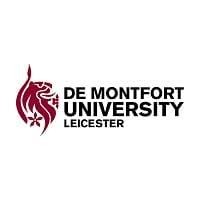Course Content
Modules
Term 1
Learning Photographic History Online (Zero credits)
This module introduces you to online learning at the MA level in Photographic History. It serves to introduce students to the platform, help them to navigate the learning tasks, and familiarise them with the expectations of the MA modules, assessment, and resources available. All students must take this module and pass the assessment to commence study. The module will cover aspects of online learning, platform navigation, MA study, and photographic history introduction to enable students to begin a module.
Material Histories 1830s to 1930s (15 credits)
This module offers an introduction to photographic images as objects. With lectures based on objects including those at DMU's Special Collections, the you will be encouraged to find and use collections local to them. You will be encouraged to learn history through a hands-on approach to primary source material.
Photography, Ethics and Emotions (15 credits)
This module examines the ethics of photography from historical and practical points of view. Engaging with research in atrocity photography, postcolonial studies and medical humanities among others, it explores how and when photographs are sensitive materials and the ethical responsibilities of photographers, historians and researchers towards historical subjects and the public.
Producing and Consuming Photographs (15 credits)
This module introduces you to the businesses, industries and markets in which photographs are made, circulated and consumed. The module is intended to raise critical awareness of the economies of photography as it is produced by companies and consumed by its audiences. The module will cover themes from the following topics: photographic companies; “crazes” and “trends”; photographs as commodities in the market; industrial histories around the world; environmental histories of photographic production.
Photographic Historiography (15 credits)
This module introduces you to historiography in photographic scholarship through examination of key theoretical frameworks and their influence on the development of research in the field. It will develop your knowledge of traditional historiographical concerns alongside current trends and new directions in writing and thinking about photographs. It also aims to enable you to think critically about the way photographic historians have formulated questions, used sources and written photographic history. It will help you to build up an informed knowledge of recent developments in photographic history, as well as the history of the discipline as it has been written across the globe. Topics to be covered will be drawn from the following: global and transnational histories; the canon of photographic history; photographic histories and the history of photography; social and cultural histories of photography; gender and race and the histories of photography; and recent developments in photographic history.
Term 2
Photography and Politics (15 credits)
This module approaches the study of photography through exploration of the medium’s employment in state, national, social, civil and cultural inter-personal relations. Combining considerations of political scholarship with internationally diverse case studies from the nineteenth-century to the present day, it unravels how photography has participated in historical processes and conditioned everyday lived experiences since its very beginnings. The module will discuss themes from: politics and the conceptualization of photography; photography and political realities; the significance of photography to the organization and re-organization of civil society; photography and gender, race, class and queer politics.
Photography, Science and Technology (15 credits)
This module introduces you to photography through the prism of science studies, considering how photography structures large organizations, how it facilitates communication, and how it comes to have meaning in the scientific world. Topics will be drawn from: The science and technology of analogue photography; the science and technology of digital photography; uses of photography in scientific disciplines; uses of photography as an organizational or scientific tool; current themes in visual science and technology studies (vSTS).
Fieldwork Experience (30 credits)
The fieldwork experience module will involve at least 250 hours of experience with a relevant organisation. Fieldwork experiences may be organised by the programme leader or you can find a reputable organisation or business with which to gain experience (on site or online).
Dissertation or Heritage Project (60 credits)
You will develop your own research in this long and deep module, either in a traditional written format or in an embedded project. The module is developed around your own research, with help of your personal tutor.








